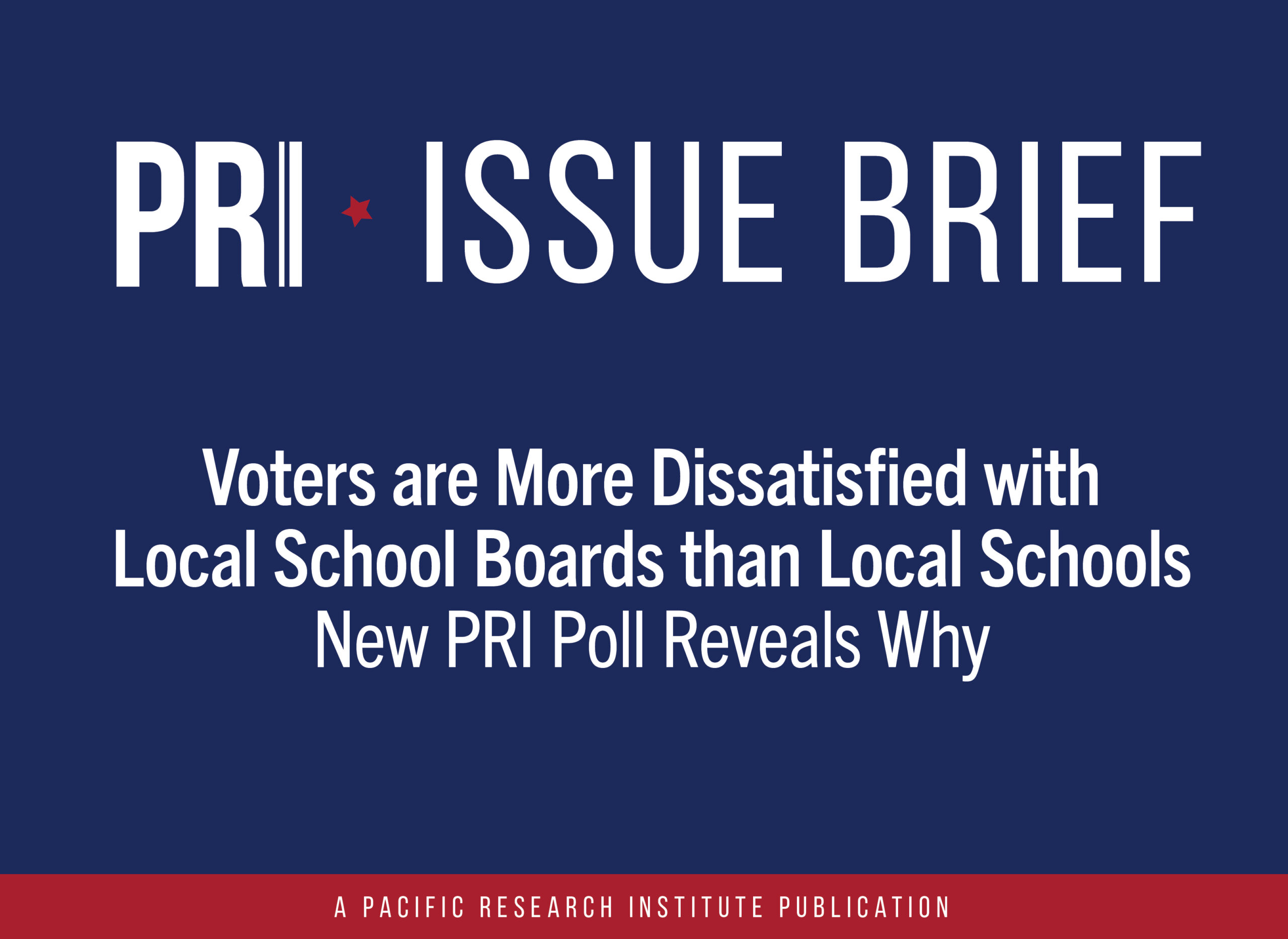SACRAMENTO – As students head back to school, a new national survey commissioned by the California-based, nonpartisan, free-market think tank, the Pacific Research Institute finds that voters are more dissatisfied with their local school boards than their neighborhood schools, and see room for improvement in public education.
When asked how they rated their local public schools, 45 percent rated them as being excellent or good, compared to 47 percent who rated them as being fair, poor, or very poor. Just 36 percent gave their local school board an excellent/good rating, compared to 49 percent who rated them as being fair/poor/very poor.
Click here to read the full survey results
“PRI’s new survey shows that, as a new school year begins, parents and the public see room for improvement with public schools and school boards,” said Lance Izumi, senior director of the Center for Education at the Pacific Research Institute. “Voters want school boards to listen to parents and focus on what public schools historically have been tasked to do – raise student achievement in math, reading, and the core subjects.”
When asked why they rated their local school boards unfavorably (respondents could rate more than one choice),
- 59 percent said they are focusing on the wrong goals;
- 55 percent said they don’t listen enough to people they should listen to; and
- 55 percent said they are trying to promote an ideological or personal agenda.
When asked who had too much or too little influence on local school boards,
- 43 percent said public school parents had too little influence (compared to 14 percent saying they had too much);
- 42 percent said the federal government had too much influence (compared to 12 percent who said they had too little); and
- 37 percent said state government had too much influence (compared to 11 percent who said they had too little).
Finally, when asked what school boards should do, the top three priorities voters ranked as being their first choices were:
- Listening to parents who have children in local public schools (21 percent ranked as first choice);
- Focusing on improving student achievement (19%); and
- Listening to local public school teachers and district leaders (13%).
Echelon Insights conducted the national survey for PRI from June 26-29, 2023, in English, among a sample of 1,020 voters nationwide determined to be part of the likely electorate for the 2024 election using non-probability sampling. The sample was weighted to population benchmarks for registered voters and 2024 likely voters on gender, age, race/ethnicity, education, region, party, and 2020 president vote adjusted for 2024 turnout probability. The margin of sampling error is +/- 3.9 percentage points.
The Pacific Research Institute (www.pacificresearch.org) champions freedom, opportunity, and personal responsibility through free-market policy ideas. Follow PRI on Facebook, Twitter, and LinkedIn.

